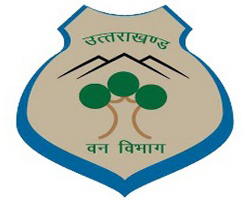28 Feb, 2018
 The Uttarakhand Forest Department and the Deutsche Gesellschaft für Internationale Zusammenarbeit (GIZ) GmbH drafted the plan of activities Uttarakhand under the bilateral Indo-German technical cooperation project “Human-Wildlife Conflict (HWC) Mitigation” on 27.02.2018 in Dehradun. This state level planning will ensure successful implementation of the project till October 2021.
The Uttarakhand Forest Department and the Deutsche Gesellschaft für Internationale Zusammenarbeit (GIZ) GmbH drafted the plan of activities Uttarakhand under the bilateral Indo-German technical cooperation project “Human-Wildlife Conflict (HWC) Mitigation” on 27.02.2018 in Dehradun. This state level planning will ensure successful implementation of the project till October 2021.
The aim of the workshop was to gain a common understanding of the project’s objective and structure, as well as to consolidate the operational plan for Uttarakhand. The plan established during the workshop will function as a project management tool to provide detailed information on the activities that will be implemented in the state.
In his welcome note, Sh. Khati emphasized on sectoral integration with other departments. Dr Khera provided an overview of the project and its approach, which focuses on harmonious coexistence, by ensuring that both – human and wildlife – are protected from conflicts. Speaking on the occasion, Sh. Jairaj thanked the German Federal Ministry of Economic Cooperation and Development (BMZ) for offering the technical support for this significant issue. He shared that his expectation from this project is to develop new innovative approaches as well as to deliver the planned activities in the stipulated time frame.
Presentation by Dr Neeraj Khera during the operational planning workshop for Human Wildlife Conflict Mitigation in Uttarakhand
The workshop discussions were guided to assess the current situation, collect existing information and share experiences on how Uttarakhand has been dealing with the various drivers, prevention methods and damage reductions of human wildlife conflicts. New ideas within the project framework were envisaged to ensure leveraging of opportunities for innovative approaches on HWC mitigation. The participants identified the key competencies which are needed in Uttarakhand, in terms of technical knowledge, management skills and institutional competence as well as the key stakeholders from the government, civil society and private sector. The discussions will now be consolidated by the project team to come up with concrete activities in the state.
© 2014 IGBP. All Rights Reserved.
Site By: Virtualpages
